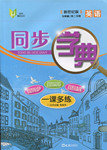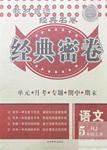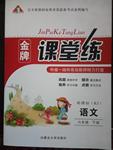题目内容
Transportation and communication networks bring people together.Yet sometimes people themselves create barriers(障碍)to transportation and communication.
In some countries,laws stop people from moving freely from place to place.Over the centuries,many groups of people have been denied the freedom to travel because of their race,religion,or nationality.In the Middle Ages,for example,Jews were often forbidden to move about freely within certain cities.South Africa’s government used to require black Africans to carry passes when they travel within the country.Some governments require all citizens to carry identification papers and to report to government officials whenever they move.
Countries set up customs posts at their borders.Foreign travellers must go through a customs inspection before they are allowed to travel in the country.Usually travellers have to carry special papers such as passports and visas(签证).Some countries even limit the number of visitors to their country each year.Others allow tourists to visit only certain areas of the country,or they may require that travellers be with an official guide at all times during their stay.
Many of those barriers to travel also act as barriers to communication.When two governments disagree with each other on important matters,they usually do not want their citizens to exchange news or ideas freely.Countries often try to keep military or lndustrial information secret.
Today,people have the ability to travel,to communicate,and to transport goods more quickly and easily than ever before.Natural barriers that were difficult or dangerous to cross a hundred years ago can now be crossed easily.The barriers that people themselves make are not so easy to overcome.But in spite of all the different kinds of barriers,people continue to enjoy travel and the exchange of goods and ideas.
1.Choose the best title for the passage.
|
A.Progress of Human Society |
|
B.Restrictions on Transportation |
|
C.Functions of Communication |
|
D.Barriers Made by People |
2.The author uses the examples in the second paragraph to tell people that_______.
|
A.travellers have to carry special papers such as visas |
|
B.customs posts are necessary at the borders of the countries |
|
C.people have been allowed to travel freely within the country |
|
D.people have not been permitted to travel freely for various reasons |
3.Why do some governments limit the freedom of communication?Because they______.
|
A.intend to keep their national secrets unknown to others |
|
B.think such freedom will lead to wars |
|
C.often disagree with each other on important matters |
|
D.want to show their authority over communication |
4.We may learn from the passage that_______.
|
A.people do not care about the removal of barriers between countries |
|
B.people can not remove the obstacles made by themselves |
|
C.man-made barriers are sometimes harder to overcome than natural ones |
|
D.barriers should be taken for granted as they always exist |
1.D
2.D
3.A
4.C
【解析】
1.通读全文,主要围绕人为障碍阻碍人际交流这一话题展开,所以选D项。
2.文章第二段第一句为主题句,然后举例说明由于种族、宗教、国籍等多种原因,有些人的行动自由受到限制。
3.根据文章第四段的描述,有些政府限制通讯自由是为了保守国家机密。
4.从文章最后一段可概括出其段落主题为:人为障碍难以逾越。

 同步学典一课多练系列答案
同步学典一课多练系列答案 经典密卷系列答案
经典密卷系列答案 金牌课堂练系列答案
金牌课堂练系列答案